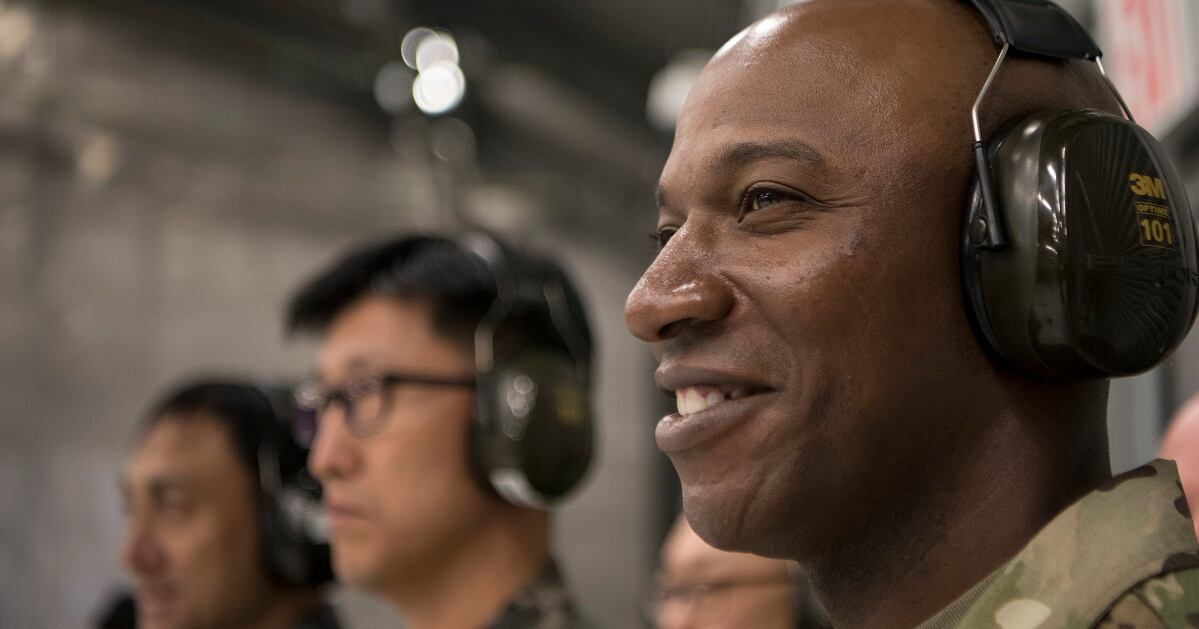The United States Air Force, like the other military services, has been besieged with complaints about acts of sexual harassment, racial discrimination, lack of diversity and the radicalization of some individuals who support white supremacy movements and other un-American causes.
Leadership is now, as in the past, scrambling to find a solution to these persistent problems. But, over time, a critical tool available to the Air Force to identify and fix these problems have been overlooked or relegated to the dust bin of misuse.
Over time, the USAF Mentoring Program, now called Air Force Handbook 36-2643 (17 May 2019), has allowed the onus of mentoring by commanders, supervisors and leaders to become a “do it yourself” program, with little emphasis on compliance or required documentation.
Air Force Chief of Staff Gen. “CQ” Brown mentioned early on how much he was helped in his career progression by mentors and how they taught him to deal with racial discrimination. However, he has not directed, mentioned or emphasized, a revitalization of the Air Force Mentoring Program.
The basis for the Mentoring Program took root under Gen. Billy J. Boles, when he served as commander of Air Education and Training Command. Boles’ experiences, at all levels of military personnel management, uniquely prepared him to bring mentoring to the forefront.
The key document and forerunner to the USAF mentoring effort, was established in AETC Policy Directive AETCPD 36-1 (8 January 1996), AETC Mentoring Program. But over the past 25 years, the initial program has been decimated.
The Mentoring Program’s basic goal was to help every individual reach his or her maximum career potential. This, by its very nature, helped prepare the individuals in AETC to become better supervisors, leaders and followers.
RELATED

AETC mentoring was designed to bring about a cultural change in the way we viewed professional development. The key was to provide clear, concise feedback to subordinates on their duty performance, their professional development needs, and what they needed to do to achieve near-, mid- and long-term career goals.
The AETC policy was based on three principles: 1) Mentoring is an inherent responsibility of leadership; 2) Supervisors must know their people and accept personal responsibility for them, and; 3) Supervisors must be accountable for their subordinates’ professional development.
The program required oversight and documented counseling by mentors/supervisors and written feedback to the mentee. While the program concentration was on professional development, there was no requirement to focus strictly on job performance. Personal matters could be included in these feedback sessions and action taken to correct problems or irregularities.
Qualified mentors could easily recognize when any of their subordinates/mentees were having personal problems, such as being sexually harassed, discriminated against, or having thoughts, or intentions, of committing suicide. Mentors could then resolve the problem, or seek additional help through their chain of command.
If revived and updated, the mentoring program would help to identify and prevent some of the most critical personnel problems the Air Force faces today.
Retired Air Force Col. Terry D. Stevens was a regular columnist for Air Force Times from 1992 to 2003. During his 35-year active-duty career, his primarily career field was military personnel and he spent seven years at the Air Force Personnel Center.
Editor’s note: This is an op-ed and as such, the opinions expressed are those of the author. If you would like to respond, or have an editorial of your own you would like to submit, please contact Air Force Times Editor Kent Miller, kmiller@militarytimes.com.




